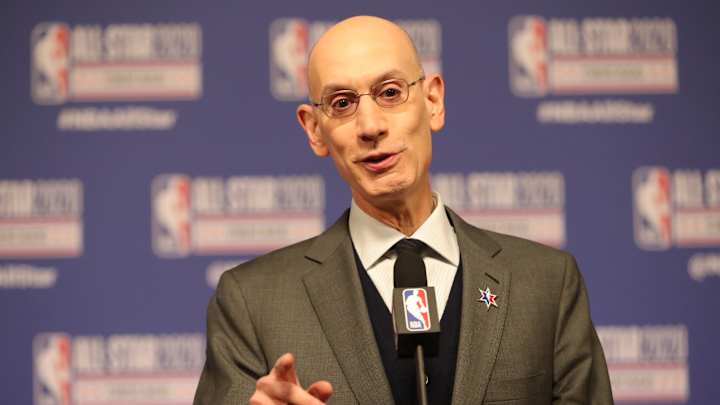The NBA’s Return Will Define Adam Silver’s Legacy as Commissioner

Adam Silver’s tenure as NBA commissioner has been marked by a variety of inflection points. Merely a few months into his reign he ousted Donald Sterling as owner of the Clippers after a racist tirade was caught on tape. He moved an All-Star Game from Charlotte because of an anti-trans piece of legislation. Unlike the NFL, he didn’t discourage players from speaking out against police brutality. And this season, Silver was forced to confront the league’s relationship with China after the country reacted negatively to Rockets GM Daryl Morey’s pro-Hong Kong tweet. The stakes of the league’s return amid the coronavirus pandemic far outweigh all these previous flashpoints, however. And the results of the NBA’s comeback will ultimately define how Silver is viewed for years to come.
While Silver, much like the league itself, has been afforded a little bit of glow as America’s “progressive” commissioner, many of his choices amid public scrutiny were also the obvious one. Sterling, with his history of discriminatory housing practices and sexual harassment lawsuits, should have been out of the NBA long before a tape of his racism was made public. Of course the All-Star Game should be held in a city that’s inclusive for all people. Stopping athletes or anyone from speaking out against injustice never made sense. (And it should be noted the league still requires players to stand for the anthem.) And not succumbing to China’s demands was an easy way to support American values while still continuing a controversial partnership.
Coming back during a pandemic which has killed more than 100,000 people in the United States is far more complicated, and the potential fallout much more catastrophic. When Silver has been tested in the past, the risks were never this severe. Ousting Sterling or moving the All-Star Game out of Charlotte may have offended a few people who will end up on the wrong side of history. Not completely kowtowing to China cost the NBA significant money, but even that loss in revenue pales in comparison to the worst outcomes of the league’s plan to play. What if a coach gets sick? What if one of the Disney employees gets infected and doesn’t have access to the same level of care as those affiliated with the league? What if bringing 22 teams and hundreds of people to one city causes a small outbreak in a state whose curve looks more like a rollercoaster? The worst-case outcomes of this return would cost the NBA and Silver much more than money.
Silver, of course, is not alone in wanting to return. Owners and players alike would like to recoup some of the lost revenue that’s come with the season’s suspension. But Silver is undoubtedly the figurehead of the league’s comeback. He unilaterally made the decision to stop play when Rudy Gobert tested positive for the virus on March 11. And since then, Silver has preached patience and science in the months without basketball. Because of his ability to guide the league through other tense moments, Silver seemingly has the full trust of everyone in the NBA and NBPA. That not only means Silver deciding on the best path to playing was going to be widely accepted. It means if he didn’t want to come back at all, that sentiment would have carried immense weight.
We’re reaching a point in this country’s history at which people are demanding action. Silver‘s legacy isn’t just some cute talking point for sportswriters, it’s going to lay bare what his motivations really are at a moment when people are demanding for institutions to, at the very least, be more socially conscious. The NBA’s return is about money more than anything else. The comeback will test what lengths the league is willing to go to protect its bottom line. How many people would have to get sick within the bubble for the league to shut down again? Is that even an option? Does the plan to start playing the 2020-21 season in December assume there will be a vaccine? Or is the league prepared to keep playing at a theme park for the foreseeable future?
If all goes well, at least by the owners and players, Silver will be hailed as a hero for finding a way for the league to come back. But if the NBA’s plan runs into any more bumps in the road, will Silver make decisions that are better for the league’s bottom line, or will he feel more accountable to the greater good? Make no mistake, the NBA is taking into account considerable risks by returning now so they can resume making money. More so than any of his other decisions as commissioner, how much higher Adam Silver’s risk tolerance is willing to go will actually decide if he’s viewed as the commissioner who was willing to take stands.

Rohan Nadkarni covers the NBA for SI.com. The Mumbai native and resident fashion critic has written for GQ.com, Miami Herald and Deadspin.